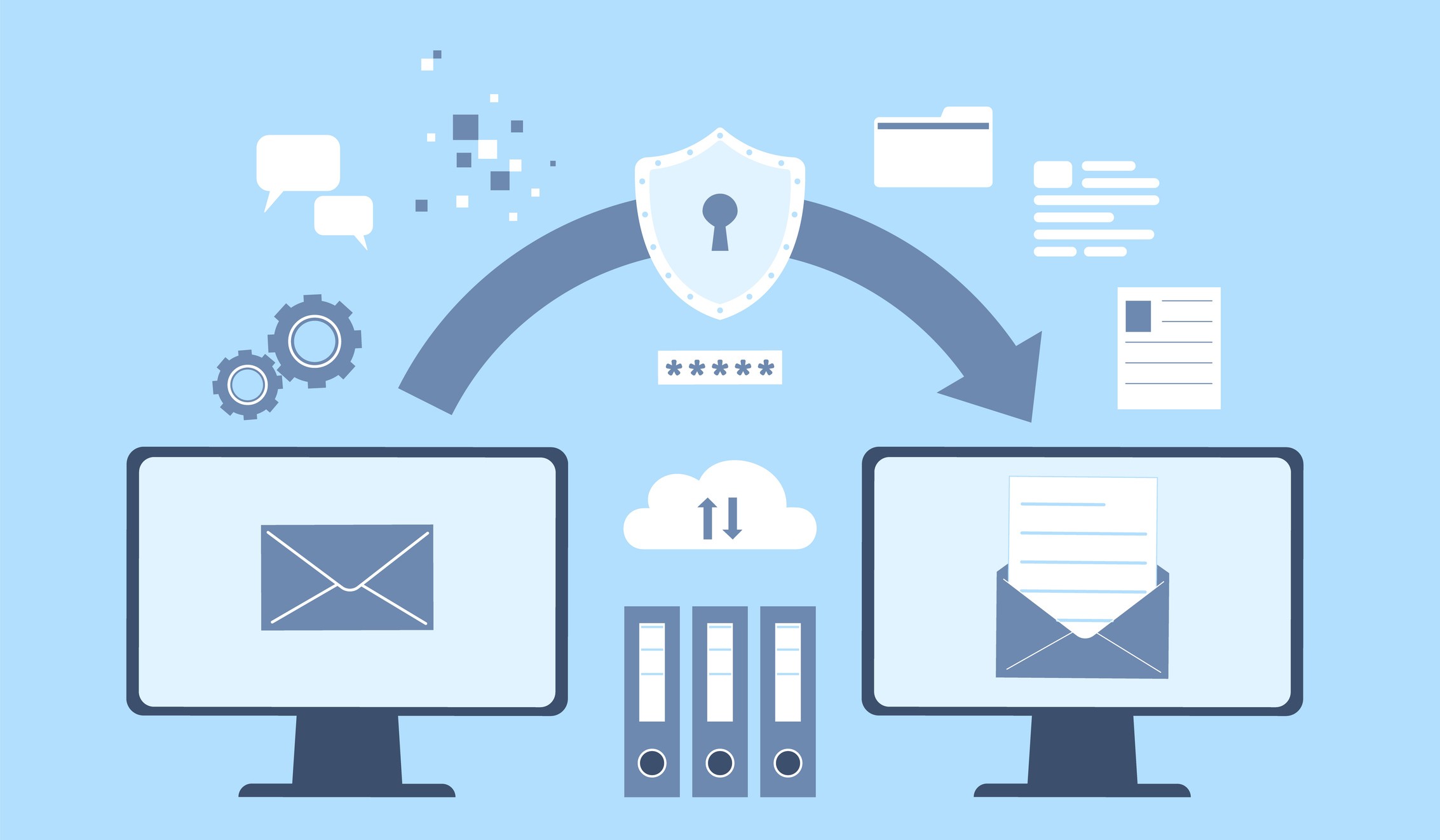Understanding the intricacies of a Web Development Proposal is essential for any business looking to embark on a web development project. A proposal serves as a blueprint, detailing the project's scope, timelines, budget, and post-launch support among other critical elements.
It's the first step in transforming your online aspirations into reality, ensuring that both parties have a clear understanding of expectations and deliverables.
By equipping yourself with the knowledge of what makes a good proposal, you can empower your business to make informed decisions, avoid common pitfalls, and ultimately, choose a web development partner that aligns with your vision and goals.
Basics of a Web Development Proposal
A Web Development Proposal is a comprehensive document that outlines the specifics of a web development project from inception to completion. It functions as a contractual agreement between a client and a web development company, detailing what the project will entail, how it will be executed, and the expected outcomes.
The purpose of such a proposal is twofold: it ensures that both parties have a clear understanding of the project's scope, timelines, and costs, and it serves as a reference point throughout the project lifecycle to manage expectations and facilitate smooth project execution.
A well-structured proposal encompasses several key components, including:
Scope of Work
The scope of work is a critical component of the web development proposal, providing a detailed description of the project's objectives and deliverables. It outlines what the web development team will build and deliver by the project's end, specifying the features, functionalities, and technical requirements of the website or application.
A clear and precise scope of work is essential to avoid misunderstandings and ensure that both client and developer have the same vision for the project. It helps in managing expectations and lays the groundwork for a successful partnership and project outcome.
Project Timeline
The project timeline details the expected start and completion dates, along with milestones and deadlines for each phase of the project. This includes the planning, design, development, testing, and deployment phases.
A realistic and well-defined timeline is crucial for scheduling and resource allocation, ensuring that the project progresses smoothly and is delivered on time. It also allows for better project management and helps in setting realistic expectations for when certain functionalities will be developed and when the final product will be ready for launch.
Budget and Payment Terms
This section breaks down the costs associated with the project, including design, development, testing, and any third-party services or tools that might be required. It should also detail the payment schedule, specifying milestones or dates at which certain percentages of the total cost are due.
Additionally, it's important to outline any conditions for changes in scope, commonly known as scope creep, which may affect the project's cost and timeline. Clear budget and payment terms help in avoiding any financial surprises and ensure a transparent relationship between the client and the web development company.
Post-launch Support and Maintenance
Finally, the proposal should cover the details of support offerings post-launch, including maintenance terms and the availability of updates or upgrades. This section outlines the duration and scope of post-launch support, specifying what types of issues or updates will be covered and at what cost, if any.
Effective post-launch support and maintenance are vital for the ongoing success of the website or application, ensuring it remains functional, secure, and up-to-date in the ever-evolving digital landscape.
Red Flags in a Web Development Proposal
While a web development proposal is a critical document that outlines the plan for your project, not all proposals are created equal. Some may signal potential issues that could affect the quality, timeline, or cost of your project.
Recognizing these red flags early on can save you from future headaches and ensure a smoother project execution. Here are some of the key warning signs to watch out for:
Vague or Incomplete Descriptions of Services
A proposal that lacks detailed descriptions of the services to be provided is a significant red flag. Vague or generic outlines can lead to misunderstandings and unmet expectations.
It's crucial that the proposal specifies what technologies will be used, what functionalities and features will be developed, and how the project's objectives will be achieved. A comprehensive proposal should leave no room for ambiguity, ensuring that both parties have a clear understanding of what the web development process will entail.
Unrealistic Timelines or Budgets
Proposals that promise a quick turnaround time for complex projects or offer a quote significantly lower than others you've received may seem appealing but can be indicative of unrealistic timelines or budgets.
These proposals may signal a lack of understanding of the project's complexity or an intention to cut corners. Unrealistic timelines can lead to rushed work and subpar quality, while inaccurate budgets may result in unexpected costs as the project progresses.
Trustworthy web development partners will provide realistic timelines and budgets based on a thorough understanding of your project's requirements.
Lack of Post-launch Support Details
Post-launch support is crucial for the ongoing success and stability of any web project. A proposal that does not specify the type of support and maintenance offered after the project's completion should raise concerns.
Reliable web development companies understand the importance of post-launch support and will outline their maintenance plans, including availability for updates, bug fixes, and further development needs. The absence of these details can leave you without necessary support, affecting the performance and security of your website or application in the long run.
Evaluating the Proposal
After receiving a web development proposal, it’s crucial to take the time to carefully evaluate it to ensure it aligns with your business objectives and expectations. A thorough assessment can help you make an informed decision and select a web development partner that will contribute to the success of your project.
Below are key factors to consider when evaluating a web development proposal:
Assessing the Proposal’s Alignment with Your Business Objectives
To begin with, measure how well the proposal aligns with your business goals and digital strategy. This involves scrutinizing the scope of work to ensure that the proposed solutions and functionalities directly contribute to achieving your objectives, whether it's increasing sales, improving customer engagement, or enhancing operational efficiency.
Consider the following:
- Relevance: Does the proposal address the specific challenges or needs of your business?
- Customization: Is the proposed solution tailored to your business, or does it feel generic?
- Scalability: Can the proposed solution grow and adapt with your business over time?
Ensuring that the proposal aligns with your business objectives is fundamental to the project’s success. A proposal that demonstrates a deep understanding of your business and its needs is indicative of a web development partner who is likely to deliver a solution that not only meets but exceeds your expectations.
Reviewing the Developer’s Portfolio and Client Testimonials
Another critical aspect of evaluating a web development proposal is reviewing the developer's portfolio and client testimonials. This can provide valuable insights into the quality of their work and the satisfaction of their previous clients. When reviewing a portfolio, consider:
- Quality of Work: Are the websites or applications well-designed, functional, and user-friendly?
- Relevance: Does the developer have experience with projects similar to yours in terms of size, complexity, or industry?
- Innovation and Trends: Does the developer demonstrate knowledge of the latest web technologies and trends?
Client testimonials and case studies can also offer a glimpse into the developer's working style, reliability, and ability to deliver projects on time and within budget. Look for feedback that highlights:
- Communication: How well does the developer communicate with clients throughout the project?
- Problem-solving: How effectively does the developer address challenges or changes during the project?
- Satisfaction: Are clients satisfied with the final product and the overall collaboration?
Evaluating a web development proposal against these criteria can significantly enhance your chances of selecting a web development partner that will not only meet your project requirements but also contribute to the long-term success of your project.
Making an Informed Decision
Choosing the right web development partner is a pivotal decision that can influence the trajectory of your business's online presence. After thoroughly evaluating the web development proposal and assessing its alignment with your business objectives, as well as the developer's portfolio and client testimonials, the next step is to weigh these findings against your needs and expectations.
Making an informed decision involves considering not only the immediate impact of the project but also the long-term partnership and support that will follow.
Weighing the Proposal Against Your Needs and Expectations
It's essential to have a clear understanding of your business needs and expectations from the outset and to use these as a benchmark when considering a proposal. This includes everything from the specific functionalities and features you require to the level of customer service and communication you expect. Consider the following factors:
- Comprehensiveness: Does the proposal cover all aspects of your project, from design and development to testing and deployment?
- Flexibility: Is there room in the proposal for adjustments or changes as the project progresses?
- Value: Beyond the bottom line, does the proposal offer value in terms of quality, innovation, and potential return on investment?
By carefully weighing the proposal against your predefined criteria, you can ensure that the choice you make is well-suited to your business’s unique needs and will support your online objectives.
Considering the Long-Term Partnership and Support
The relationship with your web development partner doesn't end with the launch of your site or application; it's an ongoing partnership that requires attention and nurturing. The right partner will not only deliver a successful project but will also be there to support your business as it grows and evolves.
- Post-Launch Support: Does the proposal include detailed information about post-launch support and maintenance? This is crucial for keeping your site up-to-date and functioning smoothly.
- Future Growth: Can the developer support your business as it scales? This includes adding new features, expanding to new markets, or scaling up your operations.
- Communication and Collaboration: Is the developer committed to maintaining open lines of communication? A partner who is responsive, transparent, and proactive in their communication is invaluable.
Choosing a web development partner is not just about selecting a service provider; it's about forming a partnership that will play a critical role in your business's future success. By taking a holistic view that considers both the immediate project needs and the long-term relationship, you can make an informed decision that positions your business for online growth and success.
Selecting Your Web Development Partner
Moving forward with a web development project is a significant step for any business, promising to enhance your your online objectives. Evaluating a web development proposal thoroughly is crucial in selecting the right partner for this journey.
- Understanding the Basics: Ensure the proposal includes a clear scope of work, realistic timeline, detailed budget, and comprehensive post-launch support.
- Spotting Red Flags: Be vigilant about vague descriptions, unrealistic promises, and the absence of post-launch support details.
- Evaluating the Proposal: Assess the proposal's alignment with your business goals, and scrutinize the developer's portfolio and testimonials to gauge their capability and reliability.
- Making an Informed Decision: Weigh the proposal against your needs and expectations, considering both the immediate project outcomes and the potential for a long-term partnership.
This journey is not just about launching a website or application; it's about fostering a partnership that supports your business's growth and adapts to its evolving needs. A well-chosen web development partner can become a valuable asset, contributing not just to the success of your project but to the achievement of your broader business objectives.
As you move forward, approach this decision with the diligence and thoughtfulness it demands. Evaluate each proposal not just on the merits of cost or timeline but on the value it brings to your business and the potential for a lasting and productive partnership.




